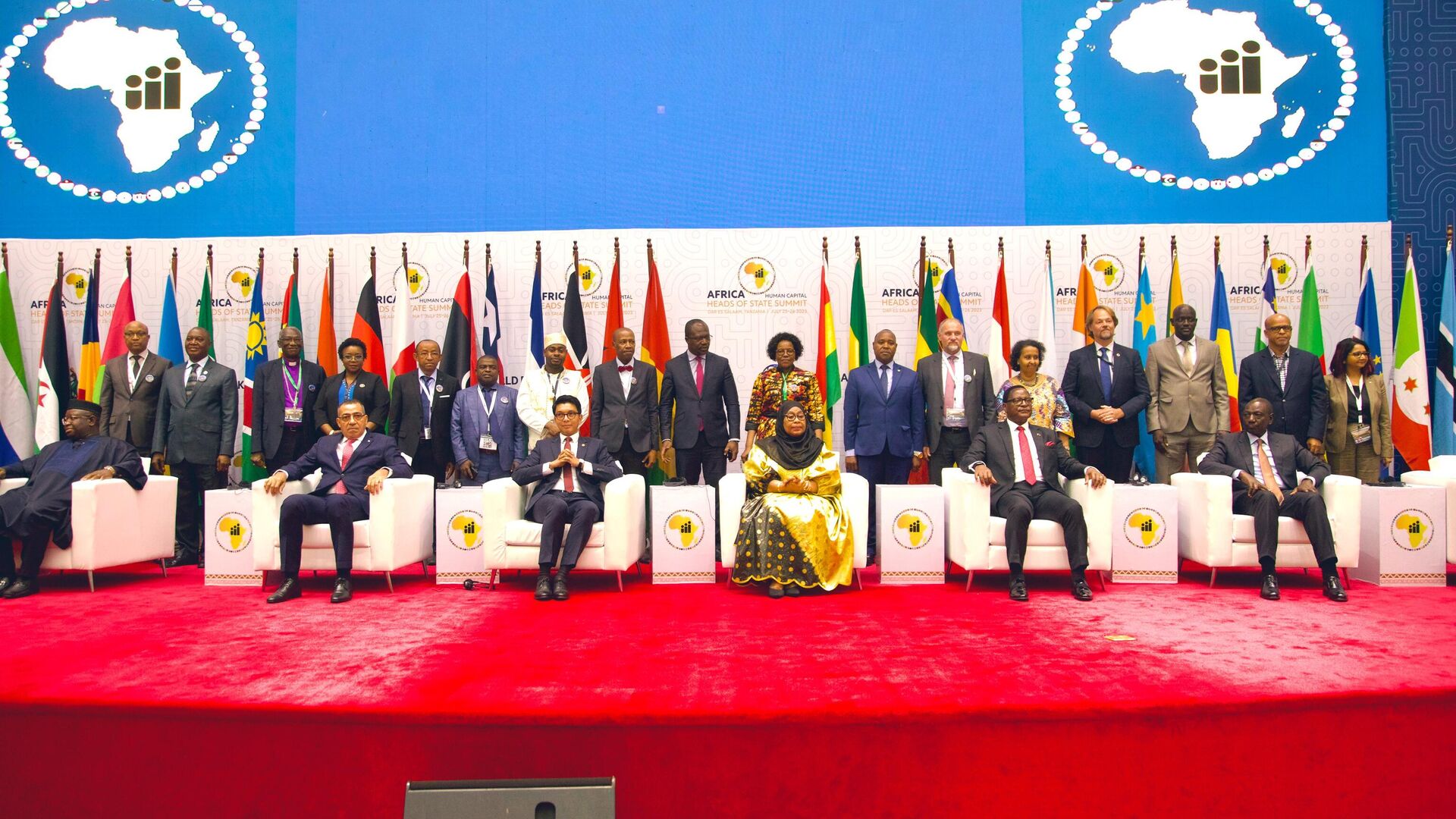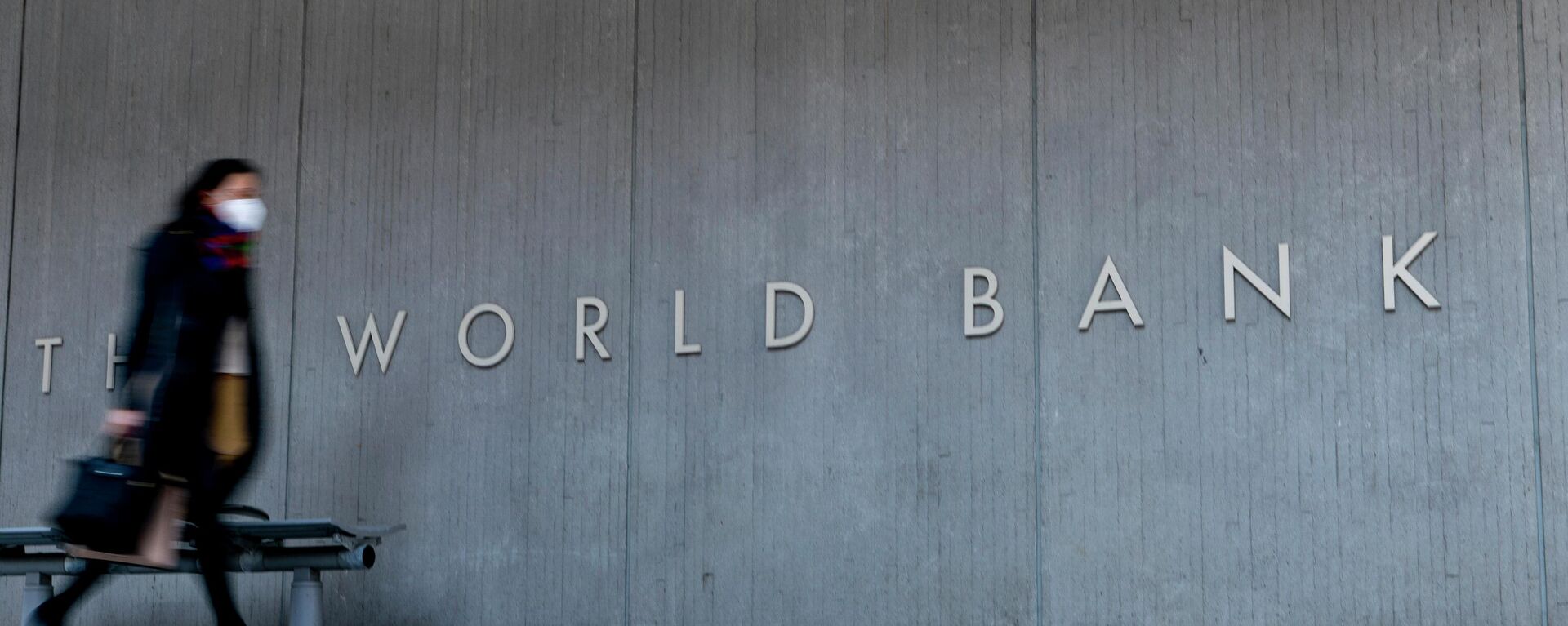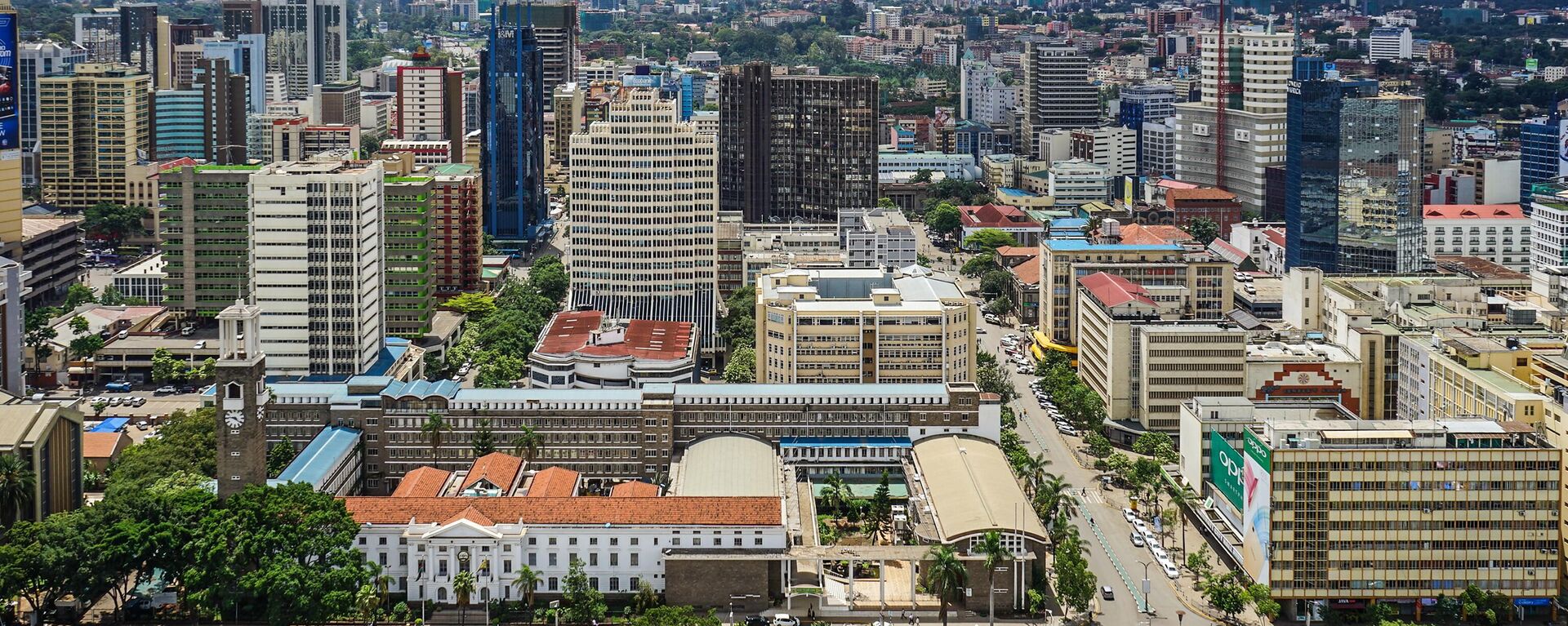https://en.sputniknews.africa/20230813/east-africas-finance-ministries-struggling-to-fund-campaign-promises-report-says-1061297781.html
East Africa's Finance Ministries Struggling to Fund Campaign Promises, Report Says
East Africa's Finance Ministries Struggling to Fund Campaign Promises, Report Says
Sputnik Africa
Despite steady economic growth and objective improvements in a number of human development indices, many East African nations face major economic issues... 13.08.2023, Sputnik Africa
2023-08-13T16:44+0200
2023-08-13T16:44+0200
2023-08-13T19:16+0200
east africa
kenya
uganda
rwanda
economy
politics
finance
tanzania
elections
presidential election
https://cdn1.img.sputniknews.africa/img/07e7/08/0d/1061301434_0:160:3072:1888_1920x0_80_0_0_b71ba3ced76306f61716342ad344c190.jpg
East African treasury and central bank officials are now under pressure to mobilize resources needed to implement campaign projects, reward political supporters and repay debts amid deteriorating financial conditions, local media has reported. According to the report, officials are trying to strike a balance between allocating funds to finance government operations, servicing debt, meeting electoral promises, and implementing programs to support economies. At the same time, these countries are plagued by rising inflation, currency devaluation and high cost of living.Against this backdrop, the region's leaders are seeking to lay the groundwork for re-election, with polls scheduled for December in the Democratic Republic of the Congo, 2024 in Rwanda, 2025 in Tanzania, 2026 in Uganda, and 2027 in Kenya.For example, in Uganda, the government of President Yoweri Museveni is seeking to raise funds to implement the Parish Development Model (PDM), a plan to improve service delivery and reduce poverty.In May, the parliament had approved Ush 52.7 trillion ($14 billion) for 2023/24. However, the first quarter of the current fiscal year is now marked by new demands stemming from the need to organize local elections this year.Patrick Ocailap, Deputy Permanent Secretary at Uganda's Ministry of Finance, insisted that the government was not under severe spending pressure, reiterating that most suppliers had been paid and that international conferences scheduled for early 2024 had been budgeted for.The report indicated that the Kenya Kwanza government, which came to power last year on a platform of pro-poor economic transformation, is now facing severe criticism over rising costs of living, driven by skyrocketing food and energy prices. During his campaign, President William Ruto promised to prioritize reducing the cost of living, eradicating hunger and creating job opportunities. However, the financial consequences of these promises, compounded by growing debt repayment pressures, are now placing a heavy burden on public finances. The government wanted to expand the tax revenue base in order to make it less dependent on foreign debt. This led to enactment of the Finance Bill, which provides for the increase of the value added tax on fuel from 8% to 16%. It also requires companies and workers to pay 1.5 % of their gross salaries into a housing levy, which will go into a fund to finance the development of low-income housing. The president has strongly supported this provision. In late June, he officially signed into law the Finance Bill, which is expected to raise over $2.1 billion for the government. Following the move, the opposition urged Kenyans to take to the streets to oppose the tax hikes.Moreover, the high court in Nairobi suspended its implementation, citing constitutional issues and noting that the act will overburden Kenyans. Later, the country's Court of Appeal lifted the suspension.In Tanzania, the administration of President Samia Suluhu Hassan prioritized agricultural productivity by increasing budgetary allocations to the sector. Her government increased funding for the sector from 294 billion shillings ($117.78 million) two years ago to 970.8 billion shillings ($388.92 million) in the current fiscal year.Following the removal of the Tsh100 billion ($40.06 million) fuel subsidy last year, the president also had to raise fuel prices by 17%, which has had a huge impact on economic growth. However, Felchesmi Mamba, permanent secretary at the Ministry of Energy, said the move had freed up more funds for the government.In neighboring Rwanda, the Rwandan Patriotic Front is trying to fulfill its promise to lift citizens out of poverty ahead of the 2024 presidential election. The ruling party committed to accelerate economic development, improve social welfare, and implement systems of good governance and justice. After being elected to a third seven-year term in 2017, President Paul Kagame pledged to "continue transforming Rwanda and ensuring a dignified life for every citizen." In 2023, the government allocated about Frw1.5 trillion ($1.2 million), or approximately 30.4% of the entire budget, under the social transformation pillar.
https://en.sputniknews.africa/20230810/uganda-slams-world-banks-hypocritical-loan-freeze-over-anti-lgbtq-law-1061214124.html
https://en.sputniknews.africa/20230810/kenyan-government-opposition-reportedly-begin-talks-to-solve-political-crisis-1061228220.html
east africa
kenya
uganda
rwanda
tanzania
Sputnik Africa
feedback@sputniknews.com
+74956456601
MIA „Rossiya Segodnya“
2023
News
en_EN
Sputnik Africa
feedback@sputniknews.com
+74956456601
MIA „Rossiya Segodnya“
Sputnik Africa
feedback@sputniknews.com
+74956456601
MIA „Rossiya Segodnya“
east africa, kenya, uganda, rwanda, economy, politics, finance, tanzania, elections, presidential election, william ruto
east africa, kenya, uganda, rwanda, economy, politics, finance, tanzania, elections, presidential election, william ruto
East Africa's Finance Ministries Struggling to Fund Campaign Promises, Report Says
16:44 13.08.2023 (Updated: 19:16 13.08.2023) Longread
Despite steady economic growth and objective improvements in a number of human development indices, many East African nations face major economic issues, including high inflation, unemployment and rising debt burdens. During their election campaigns, the incumbent leaders made bold promises to solve these problems once and for all.
East African treasury and central bank officials are now under pressure to mobilize resources needed to implement campaign projects, reward political supporters and repay debts amid deteriorating financial conditions, local media has reported.
According to the report, officials are trying to strike a balance between allocating funds to finance government operations, servicing debt, meeting electoral promises, and implementing programs to support economies. At the same time, these countries are plagued by rising inflation, currency devaluation and high cost of living.
Against this backdrop, the region's leaders are seeking to lay the groundwork for re-election, with polls scheduled for December in the Democratic Republic of the Congo, 2024 in Rwanda, 2025 in Tanzania, 2026 in Uganda, and 2027 in Kenya.
For example,
in Uganda, the government of President Yoweri Museveni is seeking
to raise funds to implement the Parish Development Model (PDM), a plan to improve service delivery and reduce poverty.
In May, the parliament had approved Ush 52.7 trillion ($14 billion) for 2023/24. However, the first quarter of the current fiscal year is now marked by new demands stemming from the need to organize local elections this year.
According to analysts cited in the report, the country should now prioritize where to spend the money. The fact that new tax revenues are not easy to come by, while the government is struggling to pay off old debts, makes budget cuts necessary.
Patrick Ocailap, Deputy Permanent Secretary at Uganda's Ministry of Finance, insisted that the government was not under severe
spending pressure, reiterating that most suppliers had been paid and that international conferences scheduled for early 2024 had been budgeted for.
The report indicated that the Kenya Kwanza government, which came to power last year on a platform of pro-poor economic transformation, is now facing severe criticism over rising costs of living, driven by skyrocketing food and energy prices.
During his campaign, President William Ruto promised to prioritize reducing the
cost of living, eradicating hunger and creating job opportunities. However, the financial consequences of these promises, compounded by growing debt repayment pressures, are now placing a heavy burden on public finances.
According to data from the National Treasury, the government started the current fiscal year on July 1 with Ksh2.61 billion ($18.25 million) in the consolidated fund. In the previous fiscal year, it spent 35% (Ksh1.16 trillion; $8.11 billion) of total revenues on debt repayment and made an increase of Ksh8 billion ($55.94 million) in funding for the presidential administration.
The government wanted to expand the tax revenue base in order to make it less dependent on foreign debt. This led to enactment of the Finance Bill, which provides for the increase of the value added tax on fuel from 8% to 16%. It also requires companies and workers to pay 1.5 % of their gross salaries into a housing levy, which will go into a fund to finance the development of low-income housing. The president has strongly supported this provision.
In late June, he
officially signed into law the Finance Bill, which is expected to raise over $2.1 billion for the government. Following the move, the opposition urged Kenyans to take to the streets to oppose the tax hikes.
Moreover, the high court in Nairobi suspended its implementation, citing constitutional issues and noting that the act will overburden Kenyans. Later, the country's Court of Appeal lifted the suspension.
In Tanzania, the administration of President Samia Suluhu Hassan prioritized
agricultural productivity by increasing budgetary allocations to the sector. Her government increased funding for the sector from 294 billion shillings ($117.78 million) two years ago to 970.8 billion shillings ($388.92 million) in the current fiscal year.
Following the removal of the Tsh100 billion ($40.06 million) fuel subsidy last year, the president also had to raise fuel prices by 17%, which has had a huge impact on economic growth. However, Felchesmi Mamba, permanent secretary at the Ministry of Energy, said the move had freed up more funds for the government.
In neighboring Rwanda, the Rwandan Patriotic Front is trying to fulfill its promise to lift citizens
out of poverty ahead of the 2024 presidential election. The ruling party committed to accelerate economic development, improve social welfare, and implement systems of good governance and justice.
After being elected to a third seven-year term in 2017, President Paul Kagame pledged to "continue transforming Rwanda and ensuring a dignified life for every citizen." In 2023, the government allocated about Frw1.5 trillion ($1.2 million), or approximately 30.4% of the entire budget, under the social transformation pillar.



